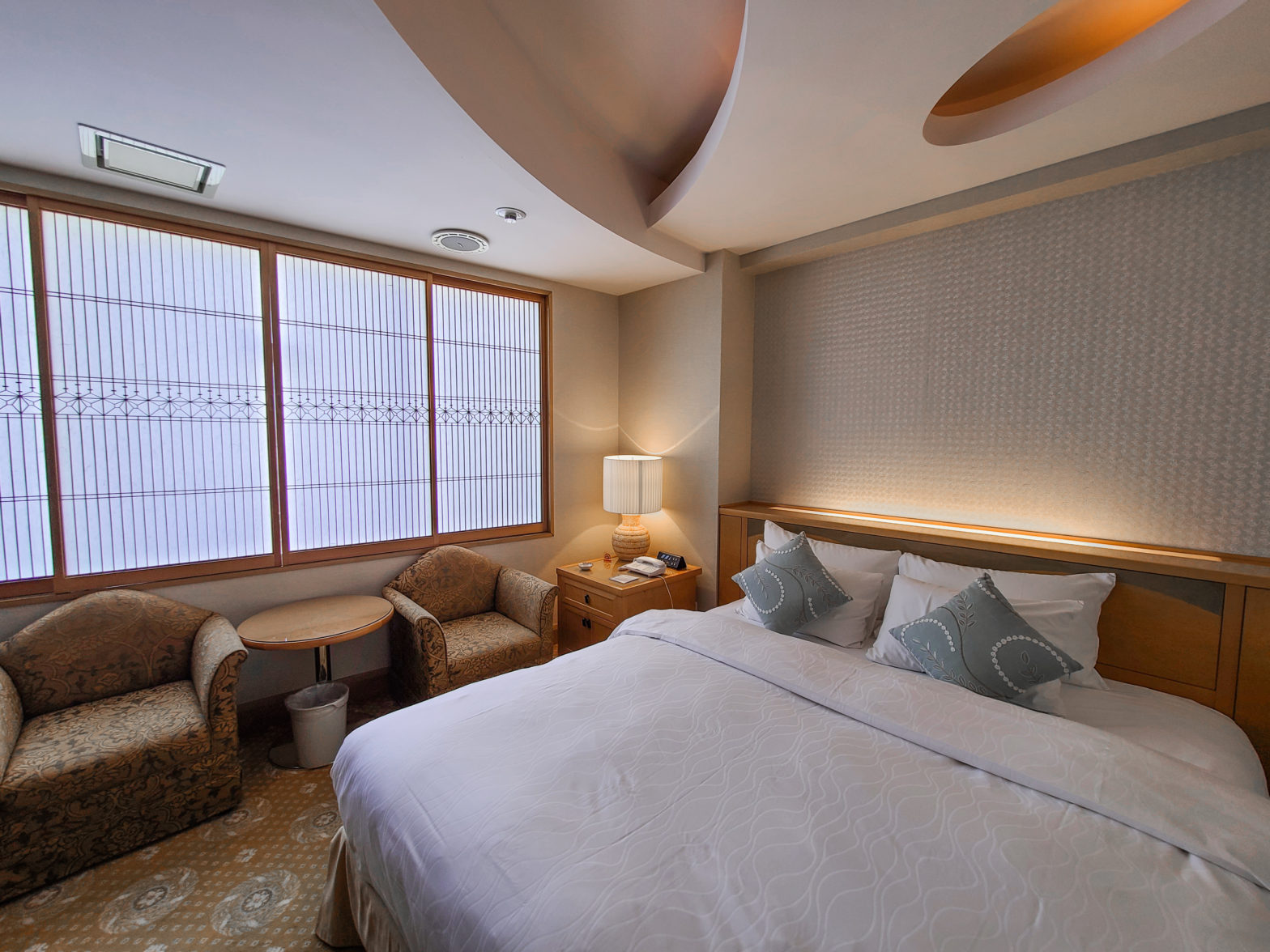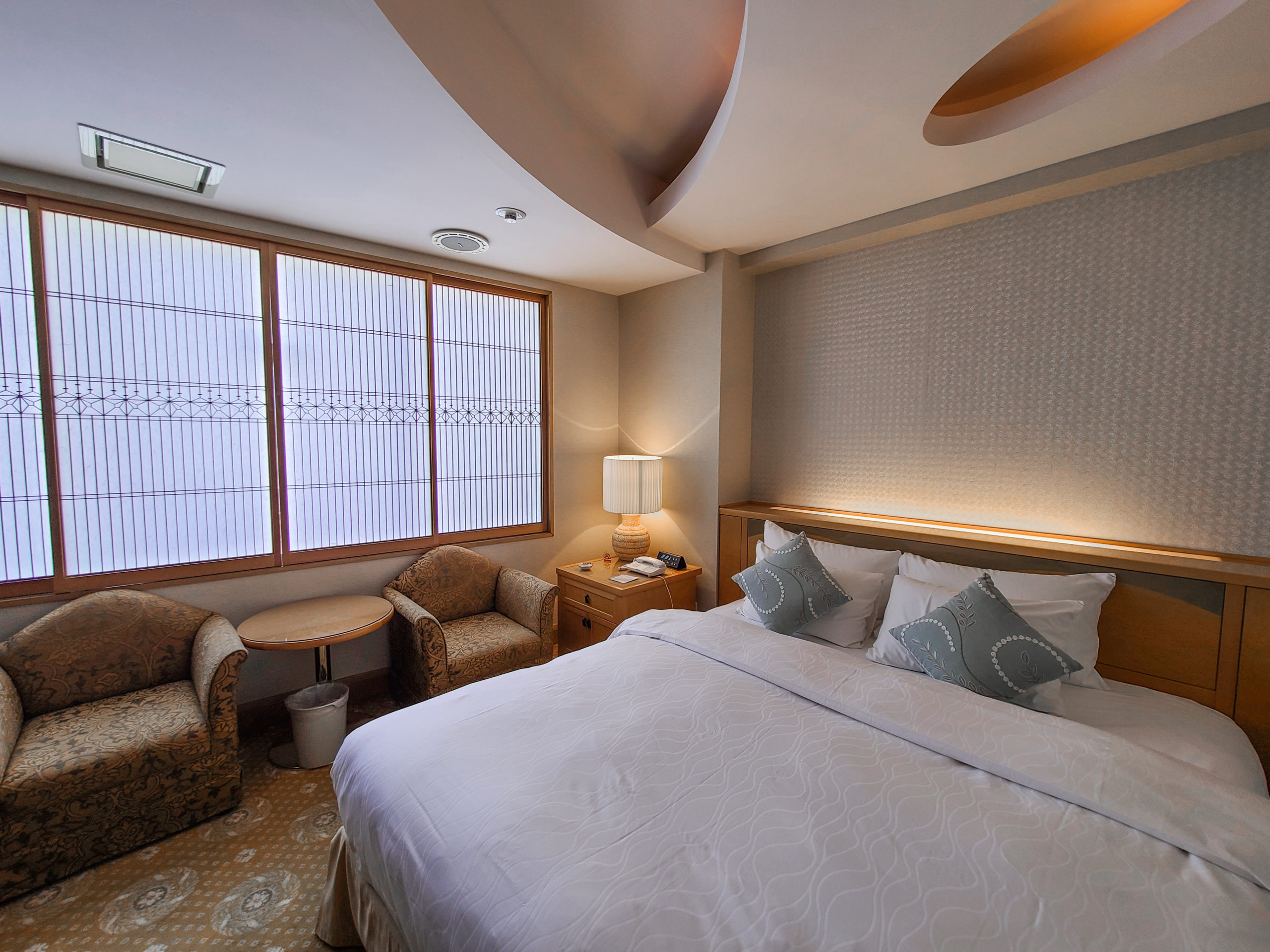
Welcome back to the Timeless Ryokan series! I’m Roza Akino, and I live and work in Japan. Thanks for joining me on my journey to explore the lesser-known lodgings in Tokyo!
Jiyūgaoka: a posh neighborhood known for its small specialty shops, restaurants, and boutiques. With its European-style architecture, the area is anything but traditional. Nestled just a few minutes away from the station is Hotel Pulitzer.

The moment I step through the glass doors of the marble entranceway, I’m overcome with the most pleasant scent that permeates the room. I close my eyes and take a deep breath before heading over to meet the hotel’s manager, Taizan Masuda-san.
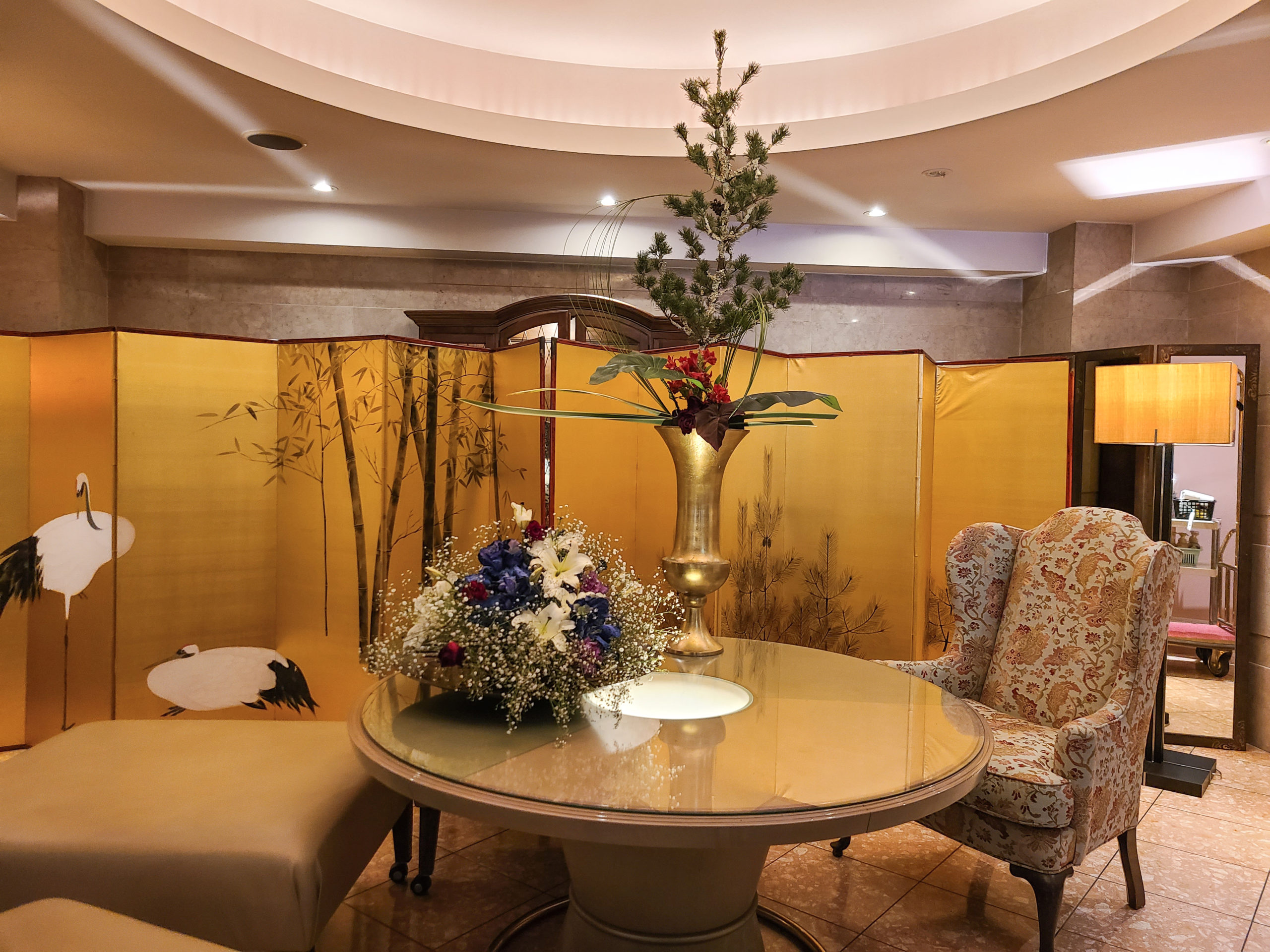
The main table in the lobby
We take a seat at the large round table that displays a grand flower arrangement piece. The chairs in the lobby are French-style, upholstered in fabric with a floral motif, while two massive antique byōbu (folding screens) cover one of the walls of the room. The soft melody of a koto, a traditional Japanese string instrument, plays in the background.
Masuda-san’s hotel is a family business, but it didn’t always use to be a hotel. At the time, although Jiyūgaoka was a popular place to go out to during the daytime, visitors would leave early because it didn’t have any place to stay overnight. Because of this, Masuda-san’s family-run securities company decided to open a hotel in the hopes that it would help boost the neighborhood’s nightlife. He goes on to explain, Jiyūgaoka has many nooks and crannies with little shops that make it a fun area to explore, both for Japanese people and foreign tourists. Jiyūgaoka is also very popular among women, so Masuda-san wanted to make the hotel a place women would enjoy staying at—this is why they put extra care into things like the flower arrangement displays and the aroma, changing and blending the scents to match the seasons. The effort seems to have paid off, since there have been instances of guests who come and stay here just to enjoy the flower arrangements.
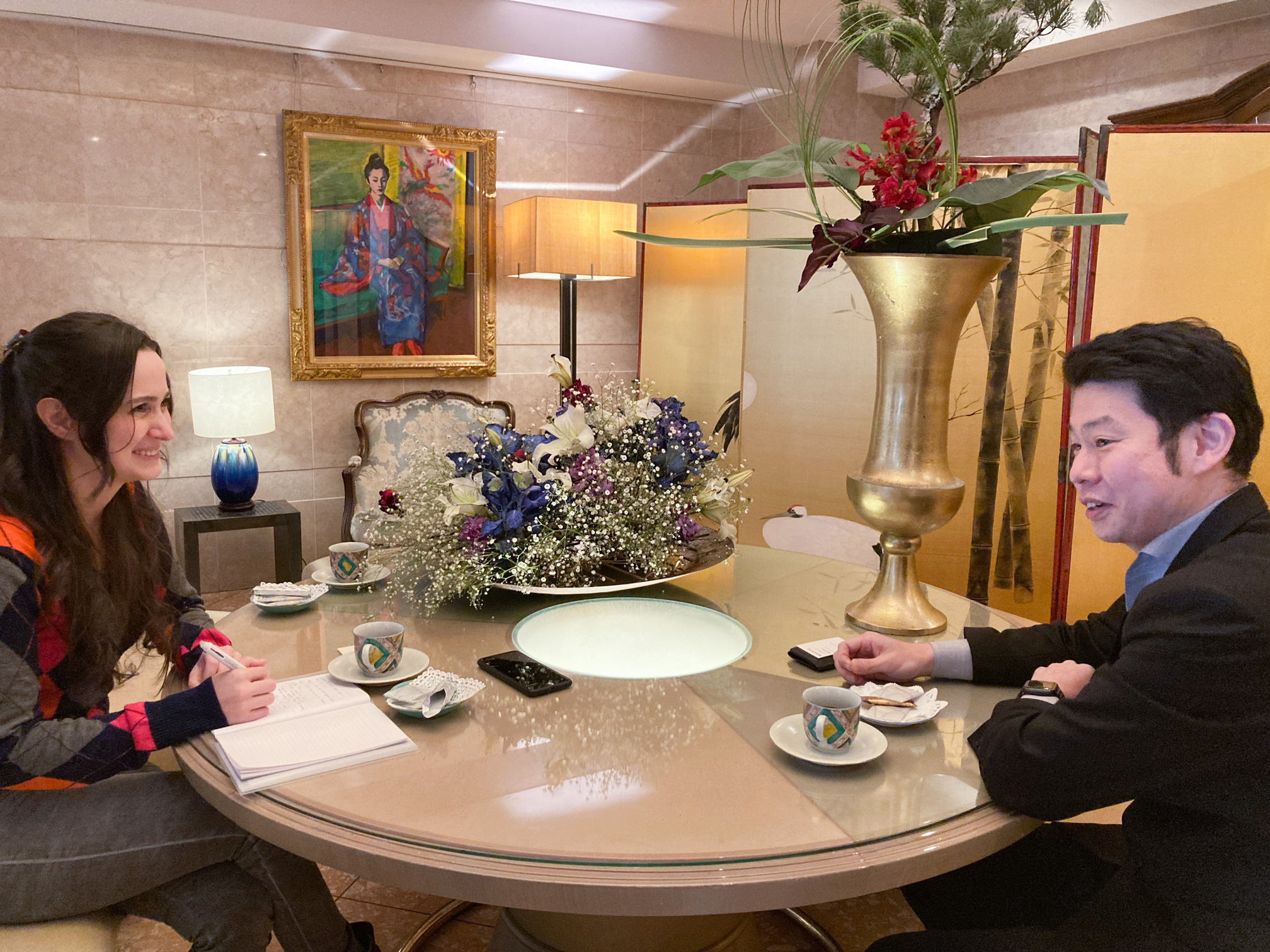
Masuda-san and I, a painting done by a Ryukyu artist hanging in the background
When the hotel was first built in 2002, there were few international guests, but this changed with the expansion of international flights at Haneda International Airport. Although Jiyūgaoka is not one of the well-known tourist spots of Tokyo, it’s perfect for those who want to get away from the crowds and noise of busy areas like Shibuya and Shinjuku, while still being close enough to the center of Tokyo for convenient transportation.
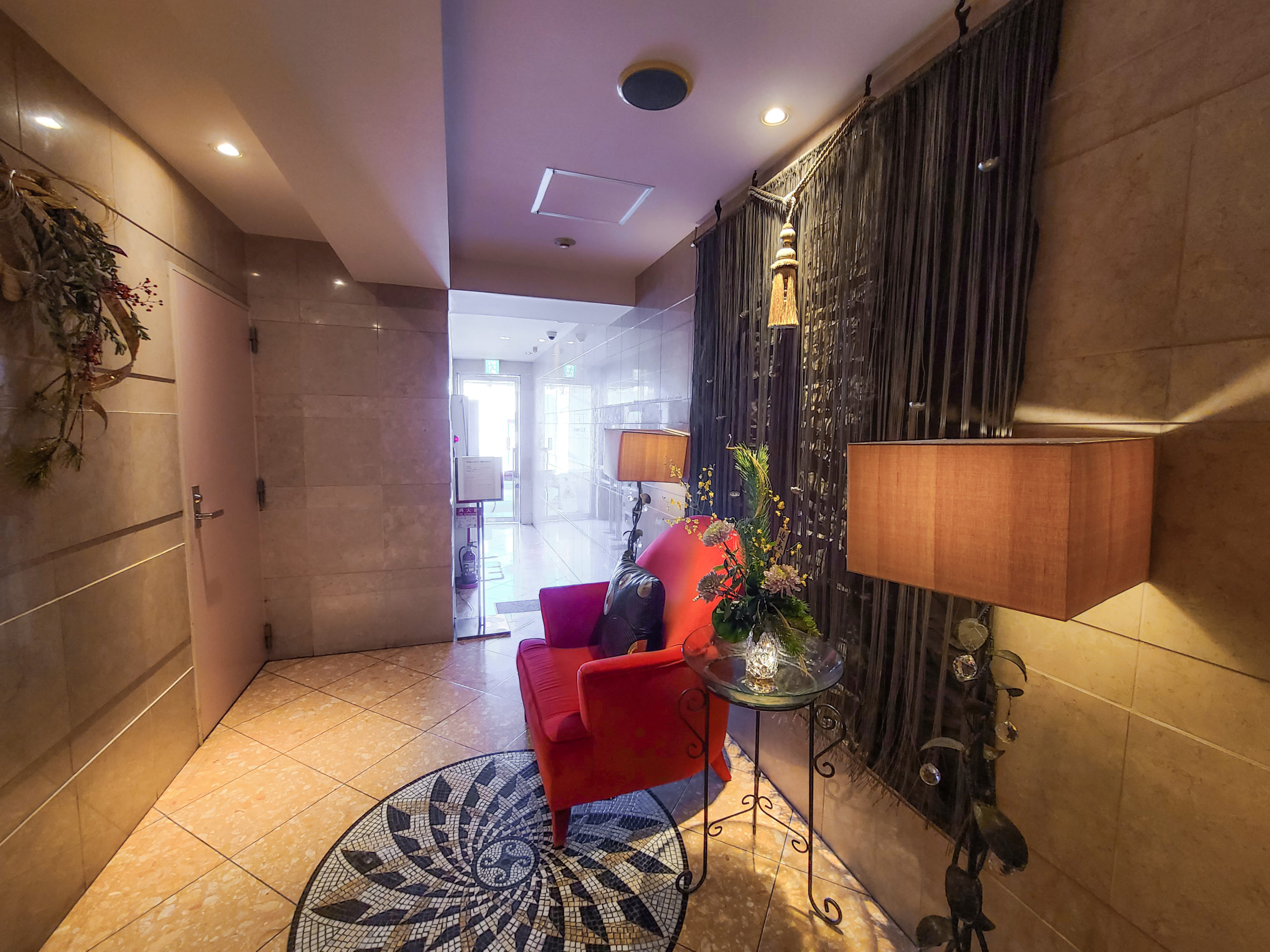
Imported Italian mosaic tiles are incorporated into the floor design
Although the hotel has many European influences such as the French flower arrangement displays, European paintings, and Italian mosaic tiles integrated into the floor, there are also many examples of traditional Japanese craftsmanship.
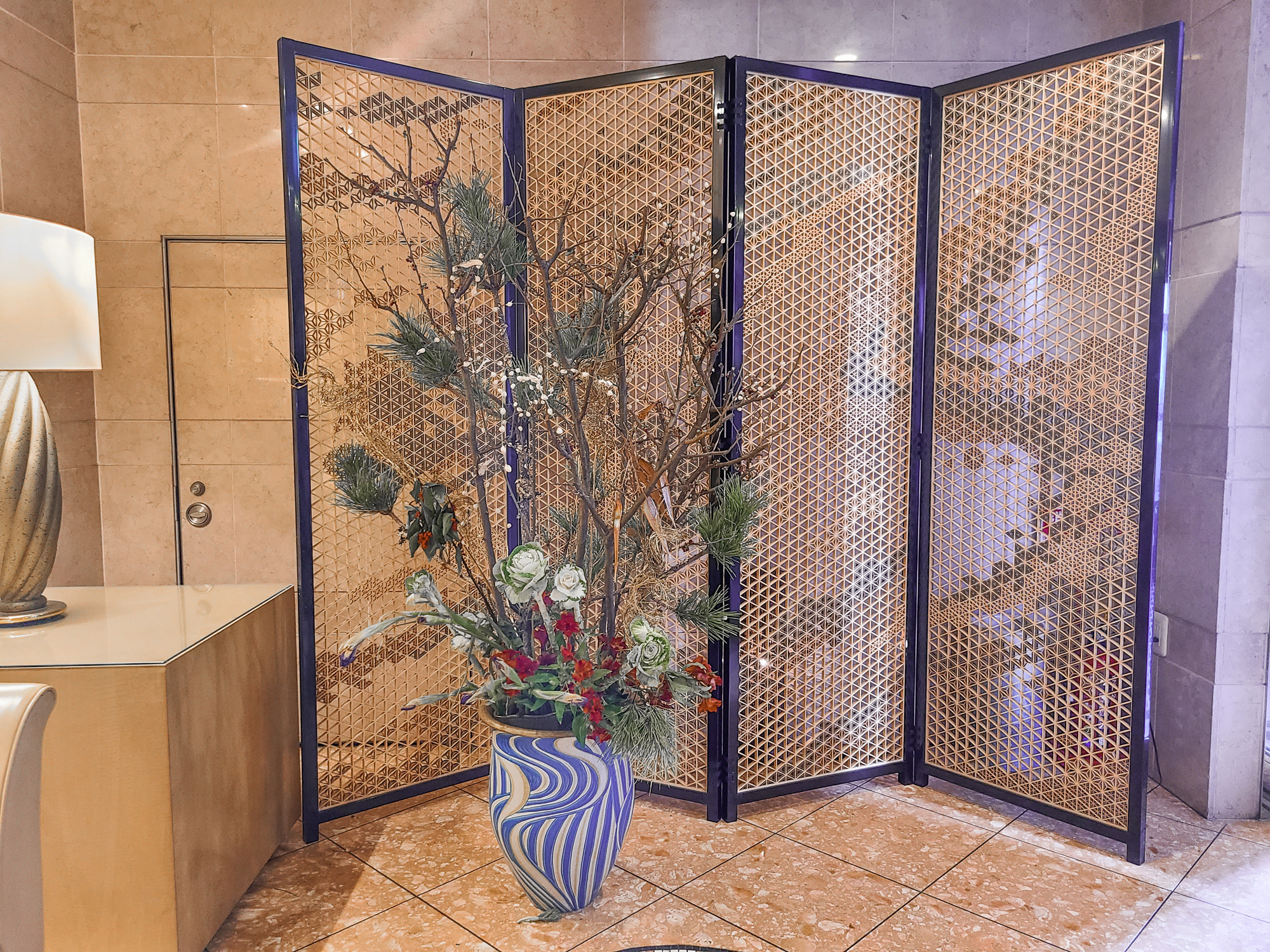
A kumiko folding screen set up in the entranceway
The folding screen in the entrance is made using kumiko craftsmanship from Toyama prefecture, and most of the porcelain-ware including the porcelain aroma pots that can be found in all 30 rooms of the hotel are Kutani porcelainware.
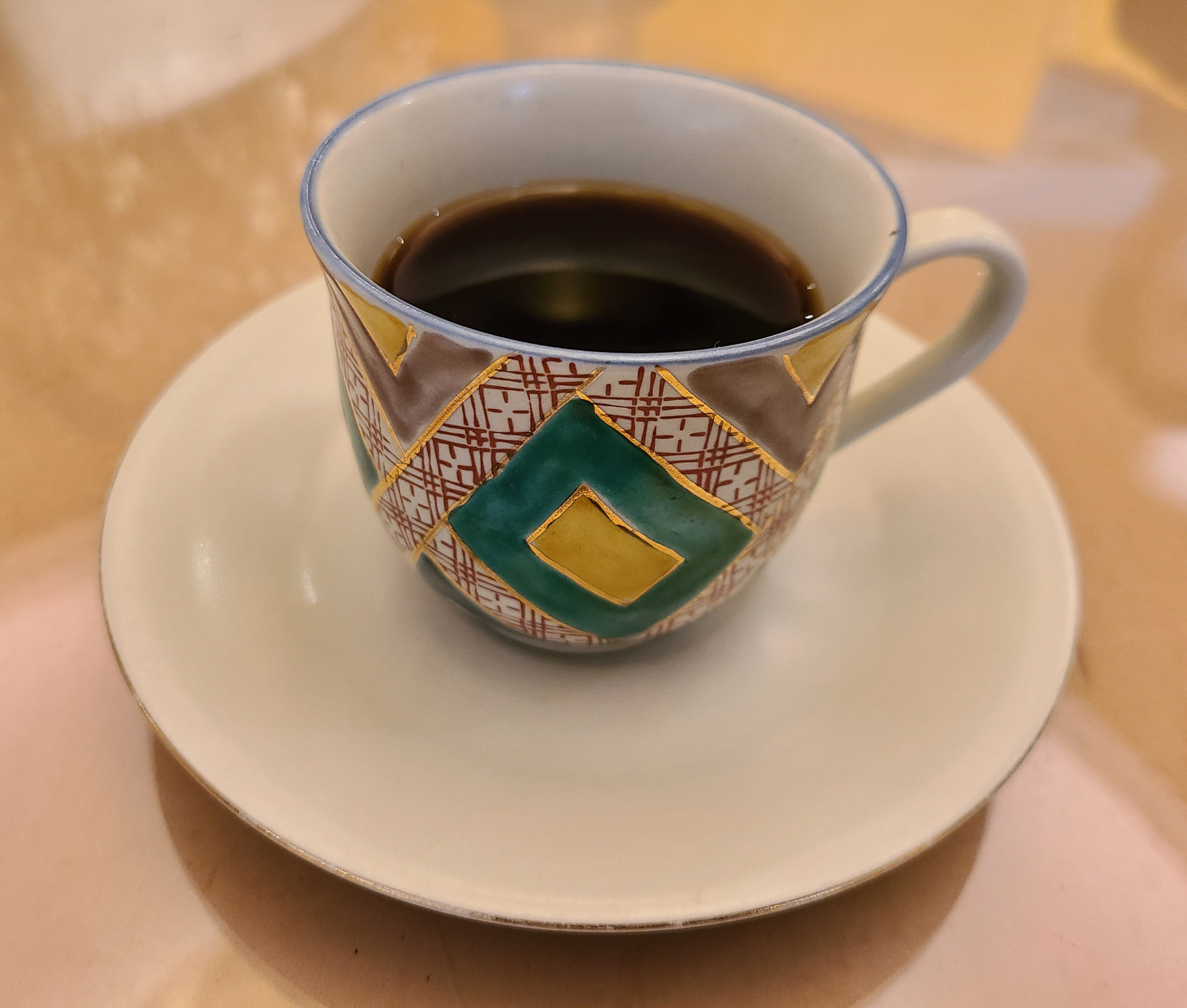
A cup (left) and aroma pot (right) made from Kutani ware
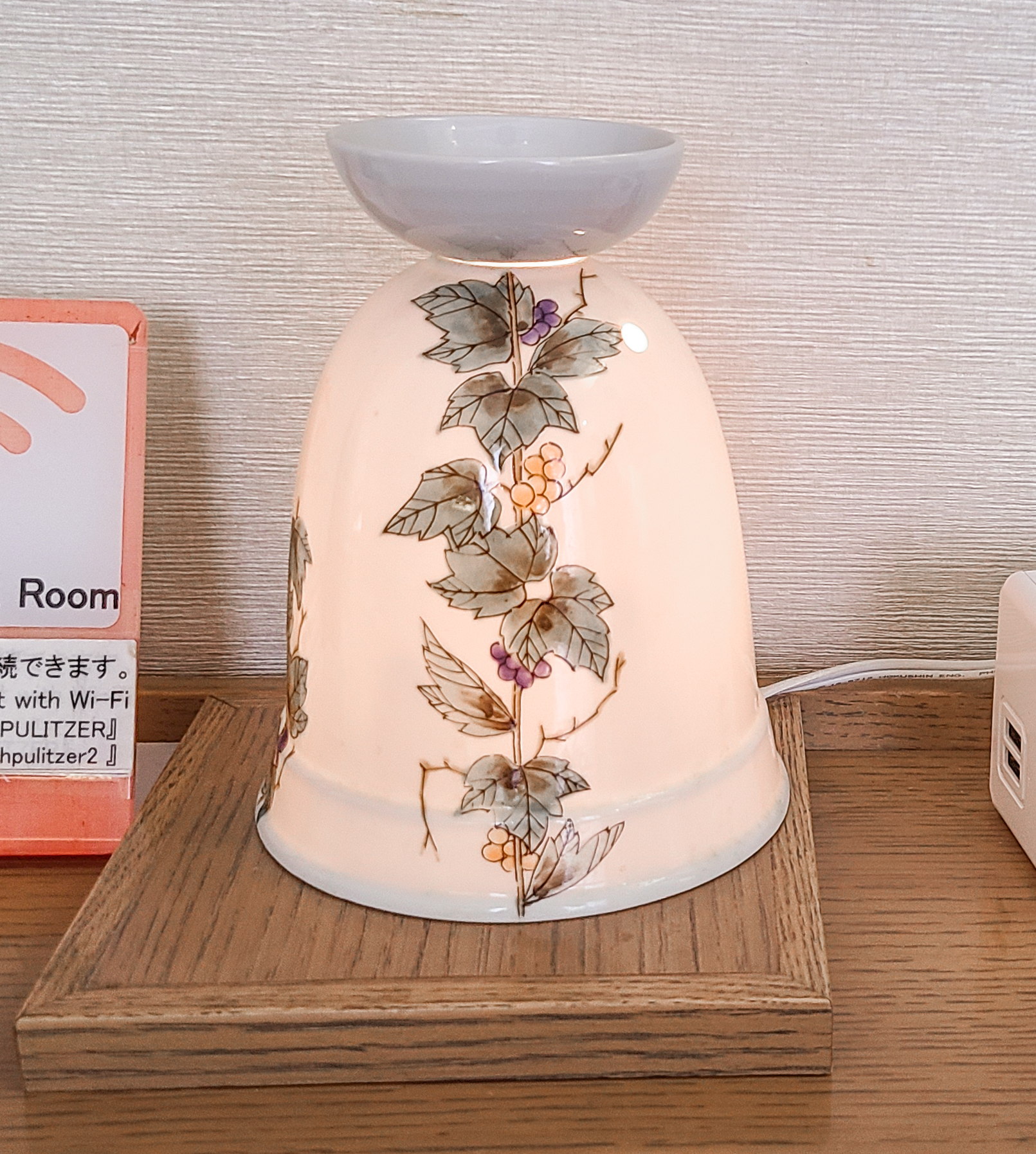
The lobby also displays a painting, which although not traditional, was done by a Ryukyu artist. Masuda-san explains that he enjoys learning about different cultures, and this is one of the reasons there is such a variety in the décor.
The staff at Hotel Pulitzer is diverse as well—the hotel has hired people from all over the world, even a man from Mongolia who came to Japan to be a Sumo wrestler. Most of the current staff speak English, and there are also some who speak Chinese. Masuda-san continues to say that the people that have worked here have taught him a lot about their cultures and even their religions, which is something he really enjoys.
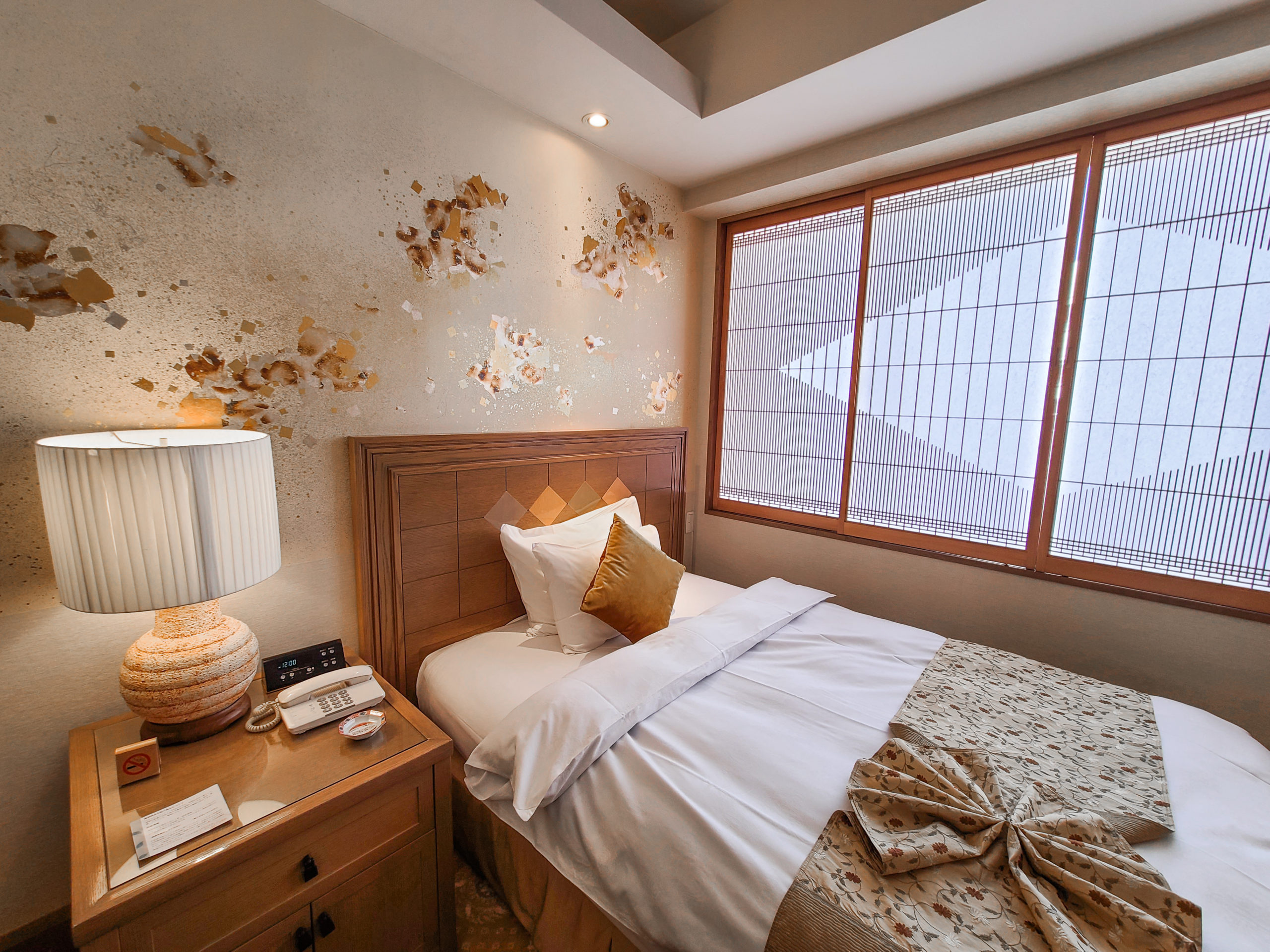
The kumiko shoji panels in the window add a touch of Japanese elegance (Single room)
The rooms here come in single, double, and one triple room, but what’s unique about this hotel is that the single rooms are relatively spacious compared to standard single hotel rooms.

There are also rooms that have a queen double bed. These beds are much more accommodating for taller or larger sized guests.
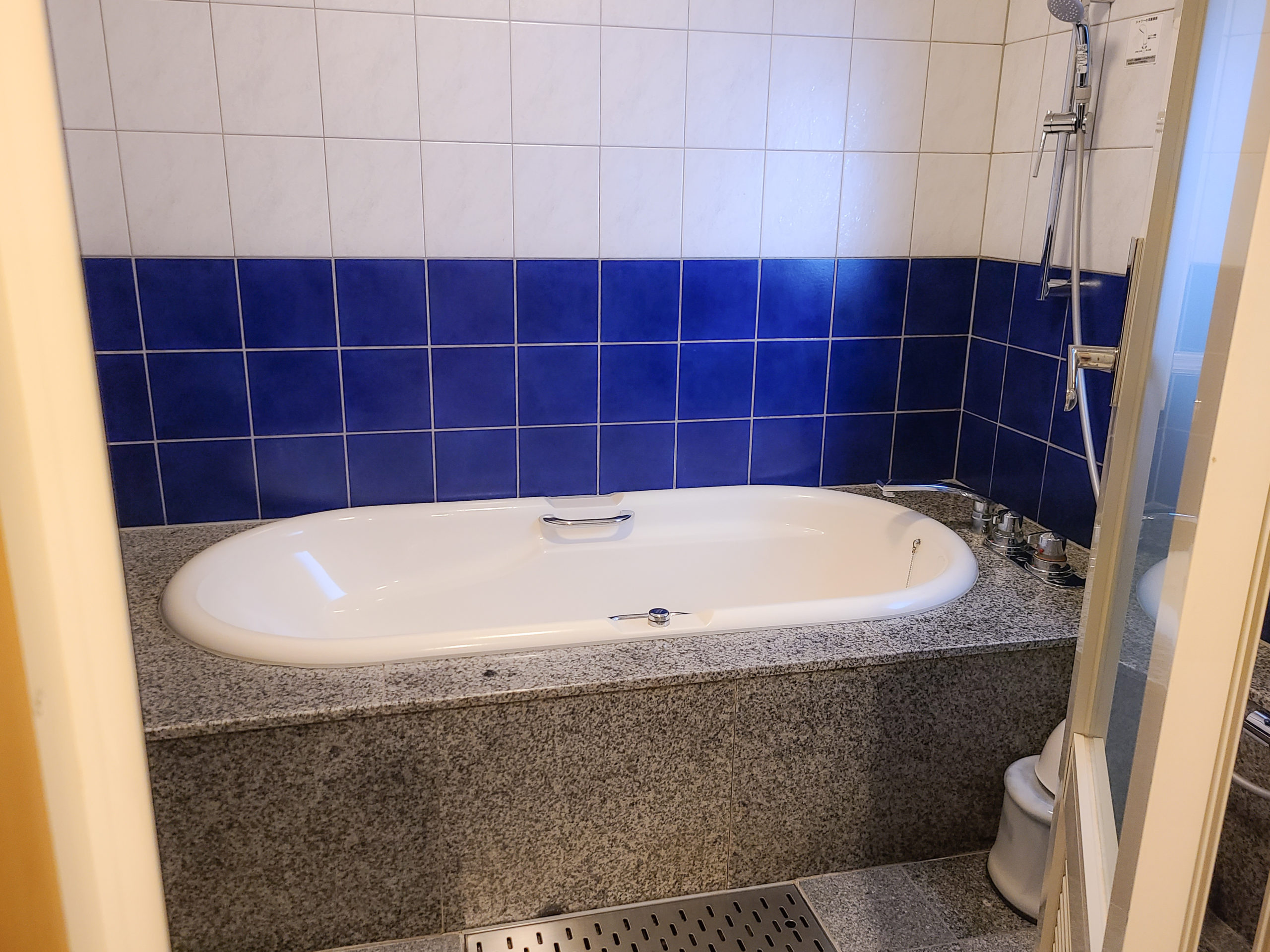
The bathtubs are also slightly larger than what you would find at a regular hotel or ryokan.
It’s worth noting that the deluxe double rooms have king-size beds.
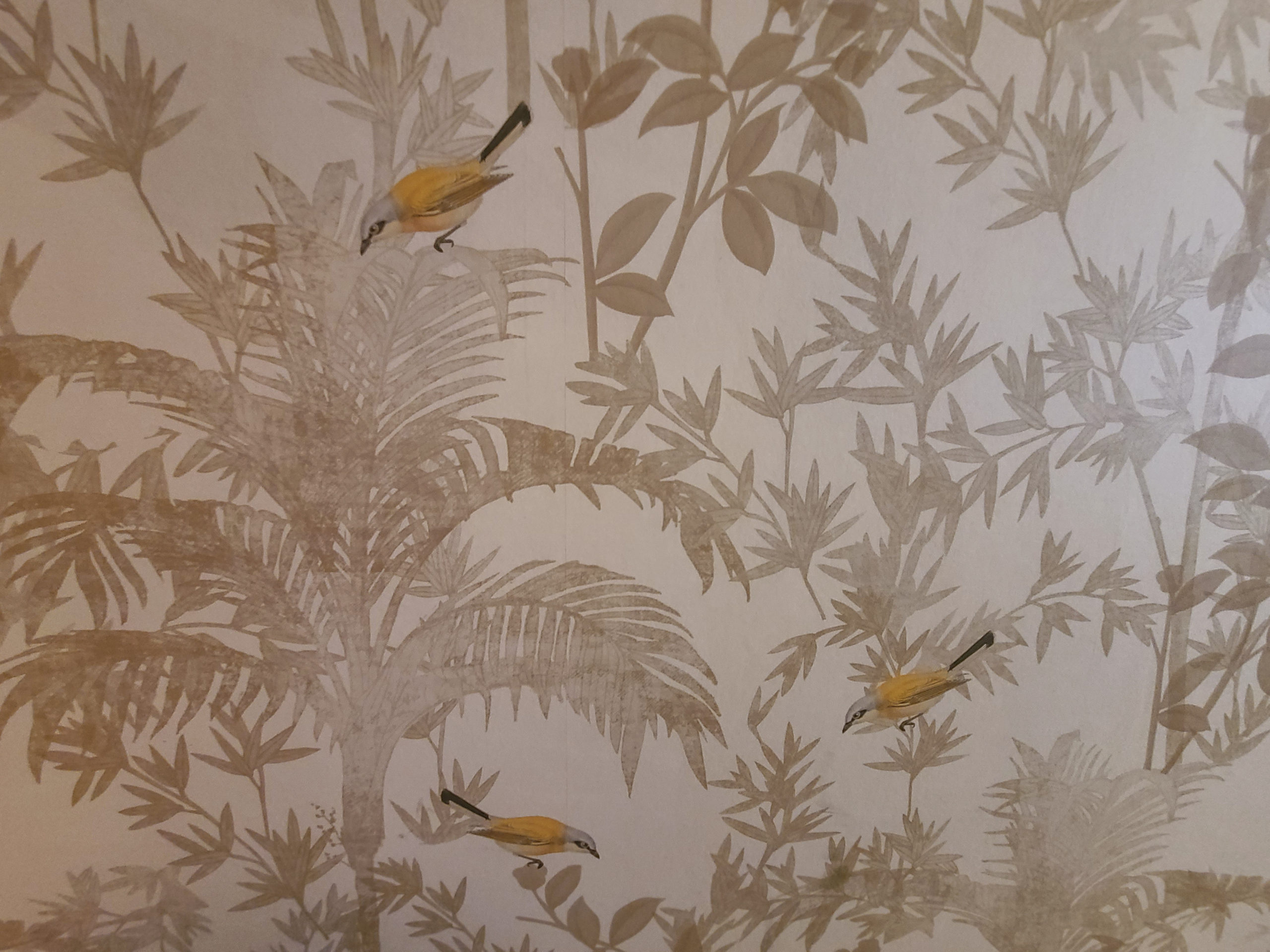
A whimsical wallpaper with a bird motif
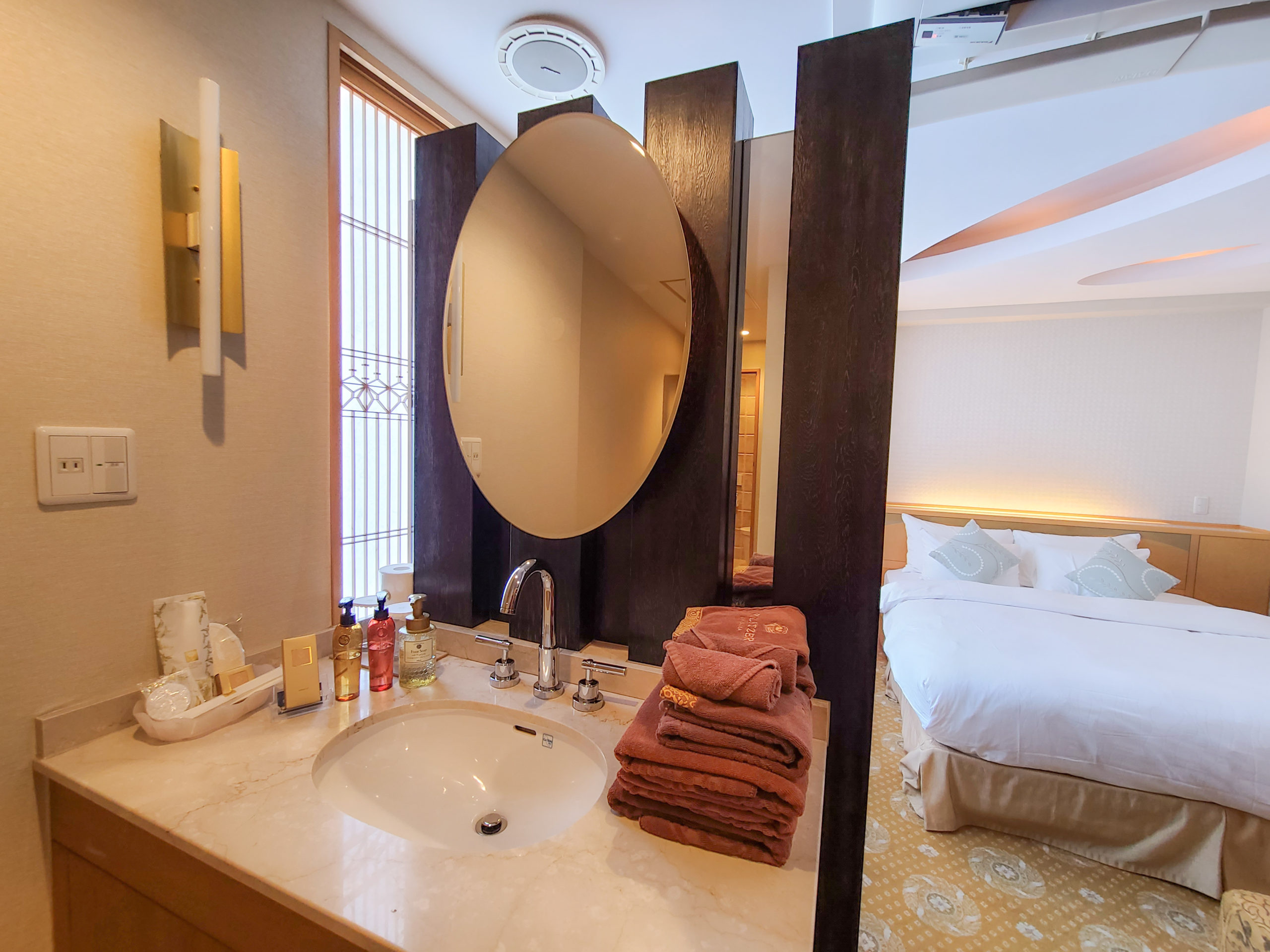
All 30 rooms are designed in different shapes, with different wallpaper and decorations, so even if you stay multiple visits there will be something new to discover.

The cabinets are also order-made
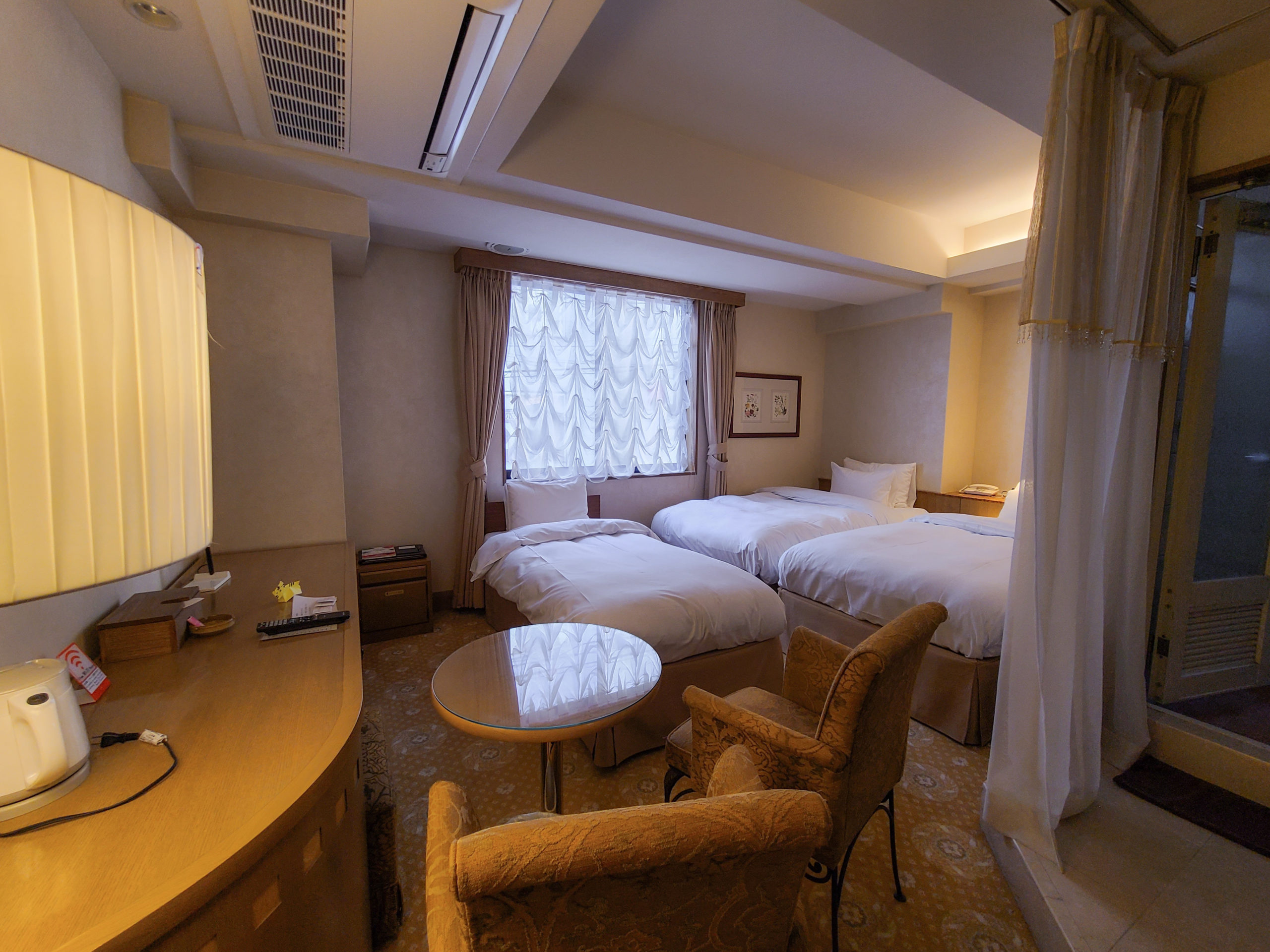
There is even a triple room with three beds!
Although the hotel doesn’t have a restaurant, the area has plenty of walking-distance options to choose from, with staff at the front desk 24 hours a day to answer any questions.
As with most lodgings throughout Japan, Hotel Pulitzer went through a difficult time at the start of the pandemic. Because unlike the traditional shoes-off policy of Japanese ryokan hotels work under the assumption that shoes will be worn inside the building and room, Masuda-san was worried about the spread of infection and was very thorough about sanitation. He even went so far as to purchase a disinfectant spray for carpets that would help reduce the spread of the virus, and of course implemented the thorough use of masks and alcohol sanitizers.
While the eventual rollout of the vaccines was a welcome relief, most of the information regarding vaccines and appointments was in Japanese. Many hotel workers, here at Hotel Pulitzer as well as other hotels in Tokyo, didn’t have enough knowledge of the language to navigate the appointment process. To help, Masuda-san created a guide that he sent out to other hotels so that they could provide information for those workers who wanted to receive the vaccine.
He continues to explain that before COVID-19, many of the staff here were actually study abroad students. The hotel provided them with a place to stay in its dormitory, as well as a part-time job for a certain number of hours allotted under the student visa work-limit. The hotel also provided them with valuable work experience, and those who wanted to continue their education in Japan had the option of a career in the hotel industry. Masuda-san would also help them with their visa and give them advice on where and how to apply for school. There were even some who eventually graduated to work at Hotel Pulitzer full-time.
As I listen to Masuda-san talk about his staff and the things they’ve experienced and overcome together, I can’t help but feel touched by the beauty of their relationships. It’s rare to find a workplace that will offer this level of support, and I feel like if I were to work here, Masuda-san would be the big brother that I never had.
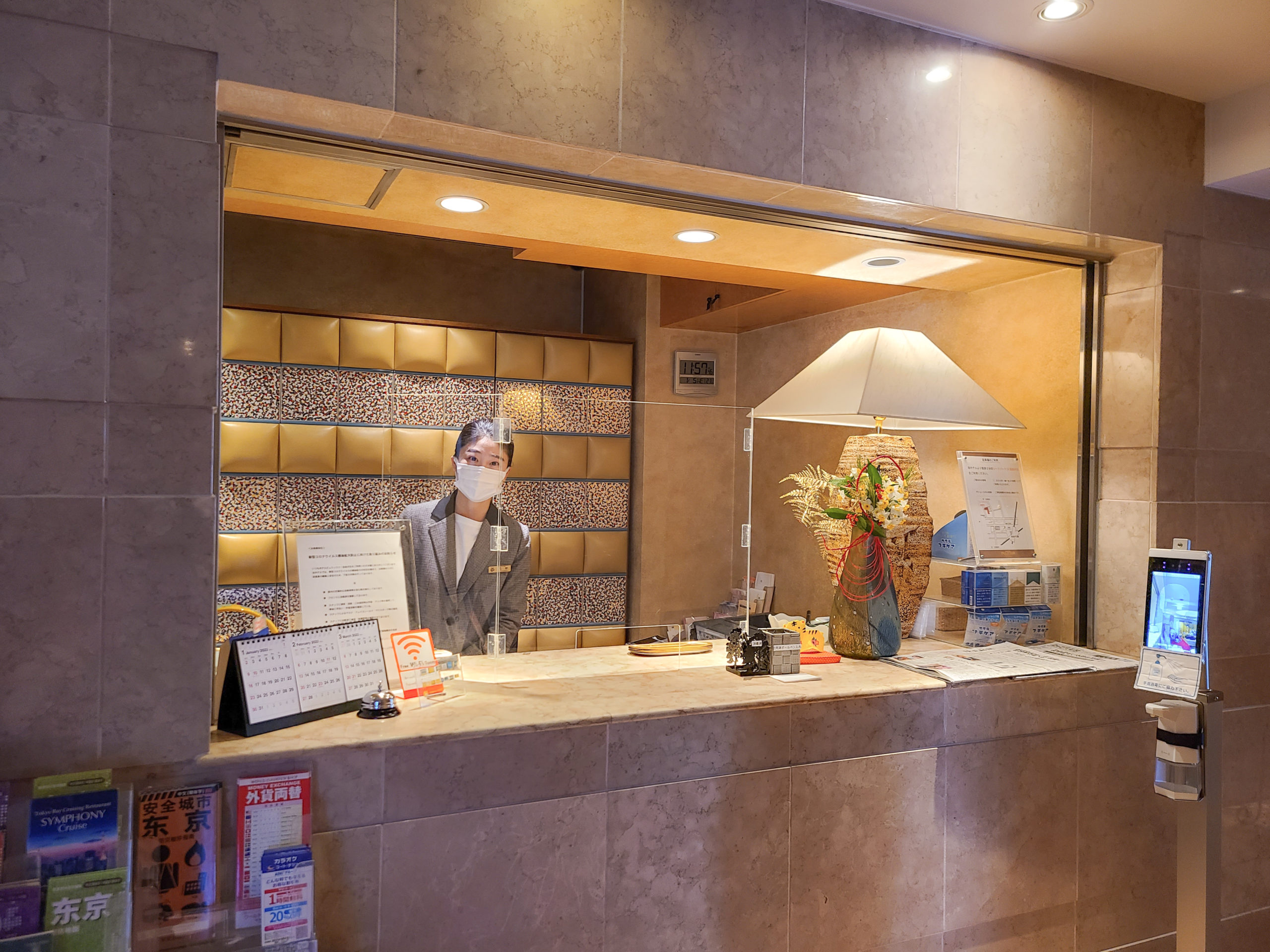
The front desk
With Hotel Pulitzer, we have come past the half-way mark of the Timeless Ryokan series, and with each encounter I am noticing more and more that it is the people that make the lodging. This is definitely the case at Hotel Pulitzer as well. I hope that perhaps if you do come and stay here, although you might not see it directly, you will feel a warmth that can only be created through bonds between people. It will feel like something in the air, almost as palpable as the pleasant aroma-blend of the day.
supported by Tokyo Hotels and Ryokans Association
